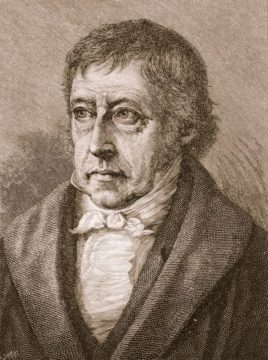 Willem deVries in Aeon:
Willem deVries in Aeon:
To an unusual degree among the great philosophers, G W F Hegel’s influence has waxed and waned. At his death in 1831, he was the reigning voice in German philosophy. His followers, however, soon split into opposed camps: the Right Hegelians, a conservative and religious group, and the Left Hegelians, a socially radical group including Karl Marx. Amid their squabbles, Hegel’s star began to fade in Germany. But in the late 19th century, it once again rose to prominence in the rest of Europe and in the United States. Certain strains of 20th-century Continental philosophy were deeply marked by his influence, such as French existentialism and the Frankfurt school of critical theory. But 20th-century Anglophone philosophy reacted strongly against the neo-Hegelian thought that dominated the universities at the end of the 19th century. In English-speaking lands (including the US), Hegel has lived under a cloud for the past century: his writing too dense, his ideas too abstract, his politics as well as his theology too suspect. His works have been treated with derision in mainstream Anglophone philosophy, and excluded from the canon that trained philosophers need to master.
The logjam that blocked English-language Hegel studies, however, is finally crumbling, and a number of Americans are leading the way. Again, Hegel’s star rises. It isn’t outlandish to suggest that the new openness to Hegel marks an important inflection point in US philosophy.
More here.
